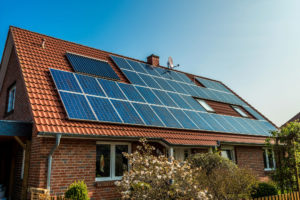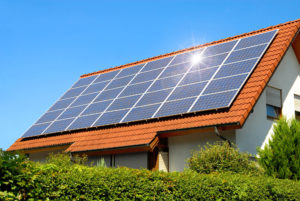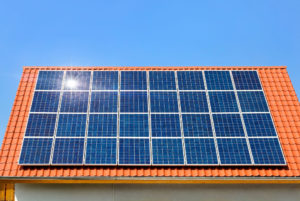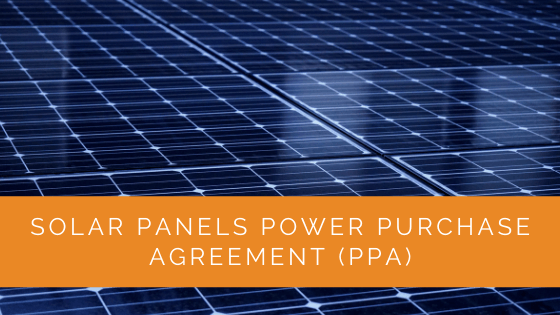An increasing number of companies and individuals are acknowledging the limitless benefits of using renewable solar energy and are installing solar energy systems on their premises.
As more and more people switch to solar PV systems, a few terms like the power purchase agreement or PPA contract and renewable energy certificates continue to confuse people. A power purchase agreement (PPA) is a contract to buy a given amount of electricity generated by a solar farm or wind farm at a specific price for a set period before the energy is produced.
All conditions governing the sale and purchase of electricity and the awarding of any applicable renewable energy incentives, such as green certificates, shall be included in the PPA.
Do you want to have a better understanding? If yes, then this article is for you. We will cover a PPA, its use, and other necessary details. So, let’s buckle down and find answers to all your doubts.
Contents
Key Takeaways
- A Power Purchase Agreement (PPA) is a contract where a company or individual commits to buying electricity generated by a solar or wind farm at a predetermined price for a specific period before the energy is produced. It covers all conditions for sale, renewable energy incentives, and commercial terms.
- PPAs are beneficial for promoting renewable energy projects, providing confident returns, cost savings, and reduced consumer risks. They allow for long-term fixed electricity prices, transferring the PPA with property ownership, and maintenance by developers.
- PPAs have specific requirements, including adequate electrical demand, suitable physical location, grid connectivity, creditworthiness, and potentially planning clearance for larger projects. Pros of PPAs include lower financial risk, fixed long-term rates, and reduced carbon footprint, while cons include potential fee increases and restrictions on tax incentives.
What is the Solar Power Purchase Agreement, and how does it work?
A Power Purchase Agreement (PPA) or Solar PPA is a long-term contract in which a company or individual commits to buying power generated from a power producer directly.
A Solar Power Purchase Agreement is a contract in which a PPA investor (developer) arranges to design, finance, and install a solar PV system at a commercial facility at no upfront costs to the facility operator.
 The developer sells the generated electricity to the other party or the customer at a predetermined or fixed price that is often lower than the retail rate charged by the local utility. This lower electricity price offsets the grid purchase of electricity by the solar customer. The developer also receives the proceeds from these sales and any tax credits or other incentives created by the system.
The developer sells the generated electricity to the other party or the customer at a predetermined or fixed price that is often lower than the retail rate charged by the local utility. This lower electricity price offsets the grid purchase of electricity by the solar customer. The developer also receives the proceeds from these sales and any tax credits or other incentives created by the system.
However, in virtual PPAs, the project will pay the company if the electricity sold in the market exceeds the agreed contract price. The company will pay the project the difference if the electricity sold in the market is lower than the agreed price.
Furthermore, all commercial terms for the sale of electricity between two parties, the energy buyer and the PPA provider, are defined in these solar power purchase agreements. It also includes the start of the project’s commercial operation, the electricity supply programs, non-delivery fines, payment terms, and termination.
Contracts for PPAs can vary, and each one is tailored to the needs of both parties. The client can remove the power plant, renew the PPA, or purchase the power plant at the end of the contract.
Requirements for PPA in renewable energy projects
Solar PPA is a great way to promote a renewable project while considering the demands of the UK energy markets. It is beneficial for both solar customers and solar installation companies.
However, not every person can leverage its benefits because there are certain mandatory requirements to meet. Here is the list of fundamental requirements:
- For solar PV-generated power projects to start, the customer must have a satisfactory electrical demand profile. Please note that it must be sufficiently large, consistent, and time-matched.
- The area that has to be covered under the solar lease project must be sufficient and at a suitable physical location, whether ground-mounted or roof-mounted.
- Generally, at least 1 square metre of roof area per kW of solar PV capacity is required. However, this will vary greatly depending on the shape and design of the roof (angled or flat) and whether ventilation units or other obstructions obstruct it.
- A cost-effective link to the local distribution grid is required.
- The consumer must be deemed creditworthy enough to finance the generator’s assets.
- Any on-site energy generation project with a capacity of 1 MW or more, whether rooftop or ground-mounted, will require planning clearance from the local authorities.
Benefits of PPA Contract
Now that you know what a PPA contract is, let’s look at some of its compelling benefits so that you can make an informed decision.
Confident Returns
 Solar PPAs guarantee the PV farm owner a long-term customer and give a set cost of power for the duration of the contract.
Solar PPAs guarantee the PV farm owner a long-term customer and give a set cost of power for the duration of the contract.
Moreover, because of the long-term nature of these agreements, the PPA can be transferred along with the property, allowing clients to invest in their houses for little or no money.
Hence, PPAs enable investments in renewable energy sources, giving investors and lenders in non-subsidized markets confidence in their returns.
Cost Saver
Solar energy system installation can take a toll on your pocket as they are expensive. However, You can obtain electricity through a PPA from a business that will manage all parts of commissioning the project, including finance.
In this way, rather than investing your funds and resources in a renewable technology installation, you can get solar electricity and enjoy the benefits of reduced energy costs.
Moreover, you will also get other financial incentives because, during the agreement, you will have to pay only the agreed-upon fixed price and become free of the electricity grid bills.
Lesser Risks
The developers maintain the PV solar system, so the consumer does not have to be concerned about equipment failure.
Hence, the customers can profit from energy produced by the solar energy system and implement more sustainable business practices with little risk if they get into power purchase agreements.
What else should you know?
Many technicalities are involved in a PPA, so it is best to know all the aspects. Here is some additional information that you must consider-
Read Every Clause
Remember that a solar PPA is a legally binding financial agreement extending from 10 to 25 years. So, you cannot take any chance because missing a single clause of the agreement might lead to bigger future problems.
Hence, you must make sure that you thoroughly review your contract with your solar development partner, just as you would any other arrangement.
Check the ETF
You must carefully read the terms and conditions section to play safe. Discuss the costs, contract length, and early termination fees clearly with the concerned person.
Considering the early termination fees is typically important because many PPA contracts allow you to end the contract early but take hefty early termination fees.
Pros and Cons of Power Purchase Agreements
 There are always two sides to a coin; if there are benefits, there will be some cons. It is best to look at both to make a wise decision.
There are always two sides to a coin; if there are benefits, there will be some cons. It is best to look at both to make a wise decision.
So, look at the following crisp pros and cons:
Pros
- There is less financial risk involved, and you will be free from monthly payments of energy bills.
- You will get electricity at a fixed rate for the long term.
- There is negligible or no upfront cost.
- PPA structures do not require you to commit much time to planning and maintenance.
- It helps the solar industry grow.
- You won’t be dependent on anyone to fulfil your energy requirements.
- By using solar electricity, you will help in reducing your carbon footprint.
- The value of your property will increase after the installation of the solar PV system.
Cons
- You cannot earn money from Solar renewable energy credits if you enter a PPA.
- You will not be qualified for tax incentives.
- There is a chance of an increase in fees over time.
- You might have to pay for the site upgrades.
- Due to the installation of the solar PV system, you might have to pay higher property taxes after the reassessment of value.
Discover the Power of Solar with Solar Panels Network
Are you navigating the world of solar installations? Look no further than Solar Panels Network, the UK’s trusted partner in harnessing the sun’s potential. Our dedication goes beyond just installations; we’re on a mission to transform how homeowners and businesses across the UK perceive and utilise energy. By choosing us, you’re reducing your carbon footprint and making a smart financial move that promises savings for years ahead. Contact us today and embark on your solar journey.
Summing Up
Due to reduced government subsidies, PPAs are becoming more popular in renewable energy enterprises and energy markets. Moreover, PPA contracts encourage solar system investment by giving investors and lenders revenue certainty in non-subsidized markets. So, a PPA model provides multi-faceted benefits.
Now that you know all the details about the PPA contract, we hope you found the information helpful.
About the Author
Solar Panels Network stands at the forefront of solar energy solutions, driven by a team of seasoned solar engineers and energy consultants. With over decades of experience in delivering high-quality solar installations and maintenance, we are committed to promoting sustainable energy through customer-centric, tailored solutions. Our articles reflect this commitment, crafted collaboratively by experts to provide accurate, up-to-date insights into solar technology, ensuring our readers are well-informed and empowered in their solar energy decisions.

